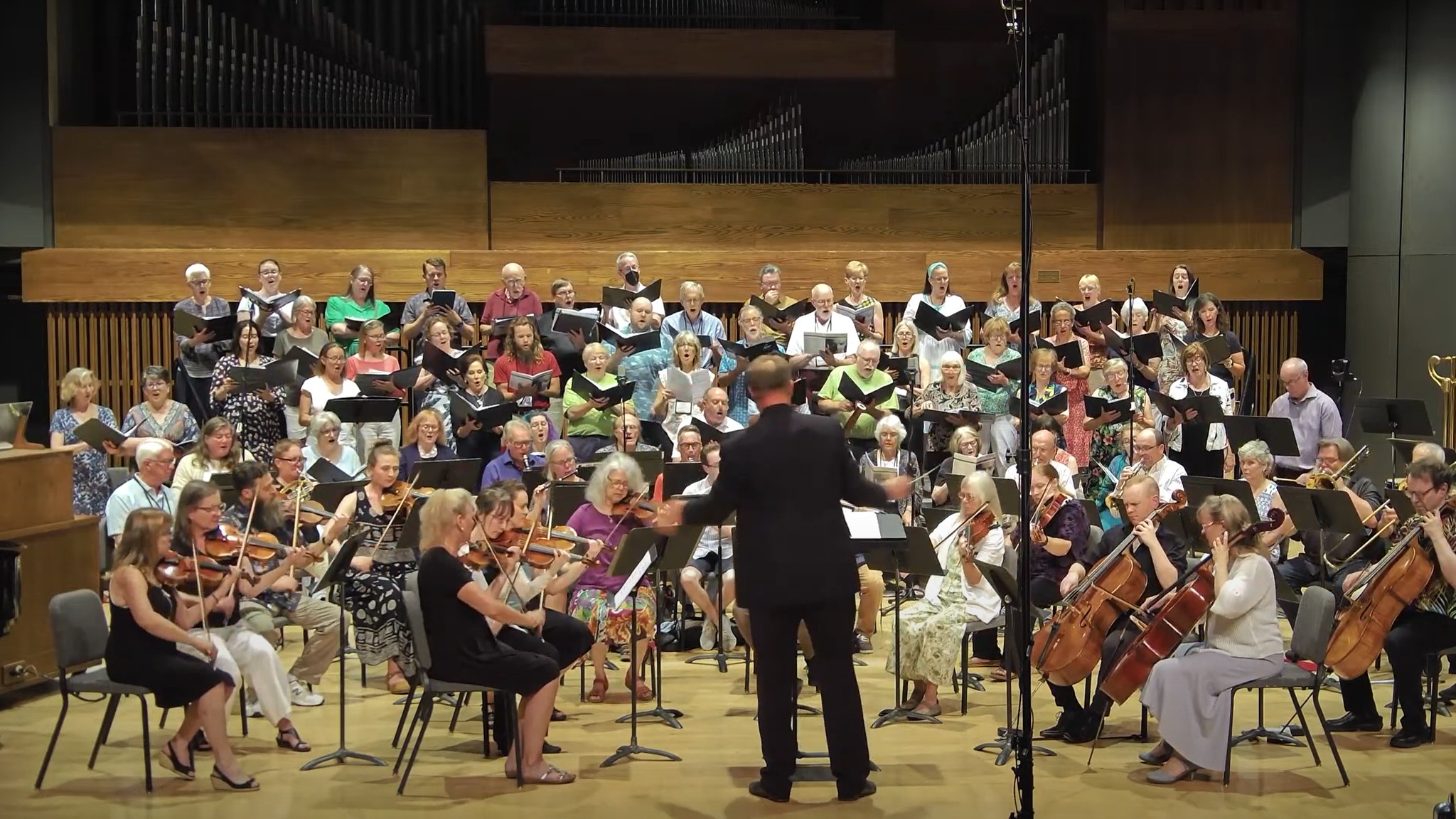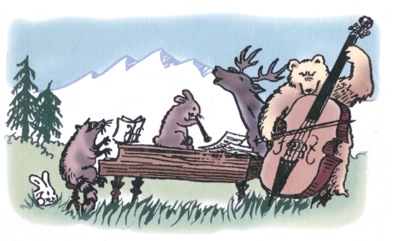
Fees & Deadlines
- Registration opens February 1, 2026
- Financial Aid Scholarships requests due by May 1
- Program preferences and self-evaluation forms must be completed on-line by June 1
- Scholarship notifications sent May 30 by email
- All fees due June 1
The program, housing, and meal plan fees are described in detail on the fees page.
Camp Dates
2026 Camp is Monday July 27th to Sunday August 2nd.
The first event of camp is registration from 2pm-7pm on Monday, and the last event is the Creekside Farewell on Sunday from 9am-10am.
Housing, Meals, Facilities, and Travel
MMR offers on-campus dormitory housing for campers, and campers are welcome to stay off-campus as well. Read about camp accessibility and camper expectations while on campus.
- See the fees page for on-campus housing and meal fees for this year.
- MMR partners with nearby hotels to get discounted rates for campers wishing to stay off campus. More info here.
- We have airline partners that offer a discount if you choose to fly into Walla Walla! Visit our information page about housing, travel, and discounts to learn more.
Faculty
MMR is proud to have a wonderful professional faculty, many of whom return to MMR year after year. Visit our Faculty Listing page to meet each faculty member.
Explore Walla Walla
Arrive a day or two earlier and take advantage of all that Walla Walla has to offer. Perhaps a wine or food tour? Golf? E-bike ride through wine country? Lots of walking tours, historical sites and activities. We’ll provide some suggestions to make the most of your time here, on your own or as part of a guided tours such as:
- Wine and Food Tours: https://www.bacchusandbarleyww.com/
- E-bike Tours through Wine Country: https://kickstandtours.com/walla-walla.html#/
Please note: since the Whitman dorms are not available until Monday night, MMR has arranged for hotel discounts for the Saturday and Sunday nights before camp.
Things to Bring
- If you are an instrumentalist, bring your instrument and anything you need to transport it between buildings (case, cart)
- Music stand that can break down for easy transport between buildings
- Water bottle
- If you are a percussionist, here is a list of mallets to bring.
MMR 2026 Repertoire
Large Ensemble Repertoire for this year’s MMR will be listed below once they have been selected. You will receive a folder with your music at check-in. Part assignments are based on policies indicated on the Large Ensemble page.
Some sheet music is public domain and is downloadable through imslp.org. Links to pieces that are available for download are listed below. String parts are not bowed. You will receive a bowed part the first day at check in.
Please be aware that the sheet music links are for referencing parts. Due to the level of work involved in part assignments, we are unable to tell you which part you will be playing until the day of check in.
Concert Band, Michael Burch-Pesses
- TBA
Choir, Nicole Lamartine
- TBA
String Orchestra, Sandi Schwarz
- TBA
Symphony Orchestra, Nikolas Caoile
- TBA
MMR 2026 Electives
There are three afternoon periods to select electives. We have not yet announced the list of electives for 2026, but to give you an idea of the kinds of electives typically offered, the 2025 electives are listed here.
Free Time
An unscheduled hour for relaxation or personal practice. Select the number of Free hours on the Afternoon Preference Form when you register.
Gentle Yoga, Lydia Van Dreel
This gentle yoga class will involve slow, mindful movement, relaxing, restorative poses and deep breathing. No experience necessary. Bring a yoga mat and loose, comfortable clothing!
Baroque String Ensemble, Sandi Schwarz
In this elective we will explore:
- It’s all in the BOW! Difference between Modern bowing and Baroque bowing.
- Shaping and direction of a phrases.
- The importance of harmony.
- This year’s selection will be some movements from Telemann’s Ouverture-Suite in B-flat Major “Burlesque” [Performance Video]
Drum Circle, Patrick Roulet
You do not have to be a master drummer to succeed in this class. After learning the basic technique for hand drumming we will learn African and Latin drumming patterns. Through these patterns we practice our ensemble skills of listening, feeling the internal pulse and fitting our rhythm into the pattern. Past students have said that transferring what they learn in this class to their other instruments helps them in rehearsal and performance settings.
Brass Ensemble, William Berry
Open to all brass: uses standard, modern instruments.
Jazz Big Band, Jim Sisko
An ideal group for all who enjoy performing large ensemble jazz. The group features traditional big band instrumentation: saxophones, trumpets, trombones and rhythm section players — piano, bass and drums. Repertoire is drawn from a mix of unique arrangements of jazz standards and originals. Will include one evening rehearsal on Wednesday. The band performs at Saturday night following the Festival Banquet.
Afternoon Elective Orchestra, Roger Nelson
An afternoon ensemble for strings and classical brass, winds. Repertoire drawn from all eras. Lots of sight reading; low key performance. Very fun!
Saxophone Ensemble, Patrick Sheng
The saxophone ensemble rehearses and performs a variety of repertoire primarily from the classical and jazz idioms (but, as Cole Porter would say, we’re not afraid to dip our toes into the “anything goes” category). Instrumentation can vary from sax trio to sax choir, depending on camper instrumentation. All saxophonists of all levels are welcome!
Flute Choir, Faculty
Clarinet Choir, Faculty
Percussion Ensemble, Faculty
Jazz Improvisation, Jim Sisko
Open to instrumentalists and vocalists, this class will cover the basics of improvising: chord progressions, what scales to use with what chords, articulation styles, and how to develop a melody.
Community through Song, Margaret Green. Experience community by singing together! All music will be taught in call and response style (up to four parts) and will include music from African, spiritual, gospel, and folk vocal traditions. Participants may also experiment with playing djembe and other percussion that enhances the singing. No prior singing experience is necessary.
How to Care for Your Voice, Scott Kovacs. Explore ways to care for your voice: the importance and technique of warm ups, vocal hygiene and routine “maintenance,” what to do when sick or vocally injured, and building vocal resilience as a strategy for long-term voice care. Though participants will sing, this is not a performance-based elective.
Medieval Women’s Choir, Lisa Pontén. Explore the mystical beauty of music from the 12th – 14th centuries, which will include serene plainchant, dramatic organum, and rowdy secular pieces in two or three parts. This music works well with lighter treble voices, or those that can control their vibrato well. Sessions will focus on tuning and phrasing ancient melodies. Learn about modes and drones and various forms of early vocal music. Music selection will include sacred (Latin) and secular texts.
Singing for Non-Singers, Nathan Shiu. Are you an instrumentalist who is curious about singing? Do you consider yourself a non-singer, or even scared of singing, but want to change that? Come join others who feel the same in a safe space to explore your voice. We’ll practice well-known folk and pop songs, rounds, and more! Presentation at the Saturday Sampler is not required.
The Magic of Taylor Swift, Gary Cannon. Whether you’re a veteran Swiftie or just wondering what all the fuss is about, this exploration of Taylor Swift is for you! We’ll consider her output both chronologically and thematically, including music and lyrics alike. Topics of discussion may include: the evolution of Taylor’s musical style over time; her expert craftsmanship in terms of harmony, melody, instrumentation, and structure; and how her lyrics reflect the fickleness of fame, the several stages of a love story, overt and subtle feminism, etc. And of course, there will be a bit of singing.
Musicianship for Singers, Loren Pontén. Are you overwhelmed by what you see in a choral or vocal score? Do you opt out of MMR chamber vocal ensembles because you think your sight-reading or music fundamentals skills are subpar? Do you always learn music by hearing it first? This elective is for you! Through this introductory level elective using the Kodály Method, participants will develop critical musical thinking and reading skills, and cultivate inner hearing through direct experience with the fundamentals of music.
